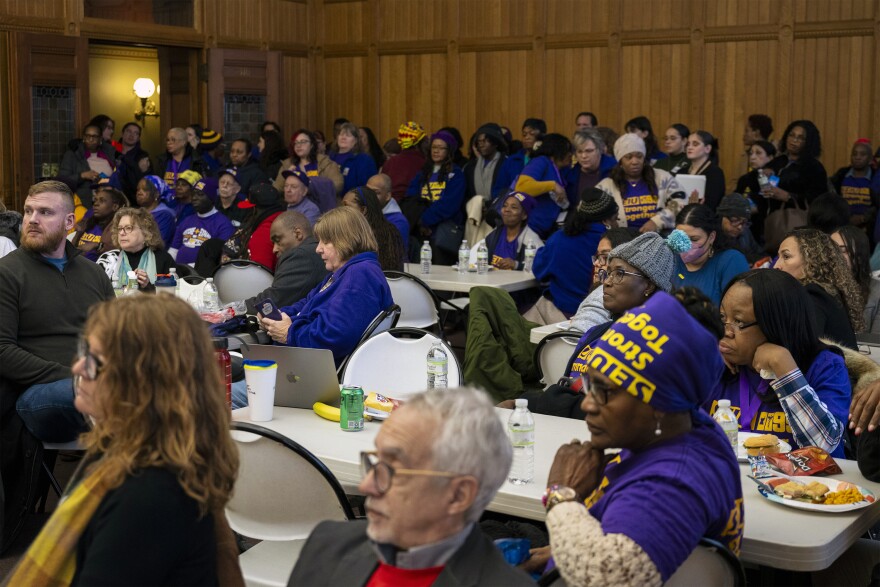Gov. Ned Lamont presented his two-year, $55.2 billion-dollar spending recommendations to Connecticut lawmakers Wednesday, kicking off the legislative budget process this session.
The spending proposal spans July 1, 2025 to June 30, 2027, and includes the Lamont administration’s budget proposal and bond package.
“Unlike other states, which are cutting back,” Lamont said, “our budget will increase by over $1 billion in each of the next two years, all the while making a transformative investment in early childhood education and another round of tax cuts.”
Lamont’s plan provides a tax cut for the middle class, and also includes more funding for special education, which cities and towns say is a growing cost taking up a lot of school district budgets. The proposal would also increase Medicaid rates for providers.
The biennial budget address also comes just over a week after President Donald Trump issued an executive order halting federal grants – causing chaos and confusion across the state and country.
The Democrat acknowledged the federal uncertainty in his speech before state lawmakers, calling out billionaire Elon Musk's effort to remake parts of the federal government. Lamont said that could cost Connecticut hundreds of millions of dollars used to provide Medicaid health coverage for people with low incomes.
“We have no idea how the feds will impact Medicaid costs,” Lamont said. “We've got the [Department of Government Efficiency] … hopefully they're gonna root out fraud. That's good. Or they may just cost-shift Medicaid expenses to the states. That's bad. If all they do is cost-shift, ‘DOGE’ is just a dodge.”
Jeffrey Beckham, secretary of the Office of Policy and Management, told reporters Wednesday morning that state budget talks began months ago, so federal cuts didn’t factor in, but they’re monitoring the situation.
“If an agency tells me that a specific stream is interrupted, then we'll pivot and think about how do we deal with that,” he said.
In the coming months, lawmakers will hold public hearings on the proposal, and make their own budget suggestions in April. A final spending package will go for a vote before the General Assembly in June, and require Lamont’s final approval to pass.

A ‘downpayment’ on universal pre-kindergarten
The Lamont administration earmarked $300 million to expand pre-K. The plan draws on a budget surplus from the last fiscal year – by working around one of the state’s spending caps known as “fiscal guardrails.”
“Saving parents thousands of dollars and giving them the freedom to get back to work – because parents, businesses need you,” Lamont said.
Democratic lawmakers and advocates had been calling on the governor to loosen the “guardrails” enacted in 2017, to help fund essential state services.
Lamont’s new “universal pre-school endowment” proposal would create free pre-K spaces by 2032 for families earning up to $100,000. His administration said it could reduce costs for tens of thousands of existing spaces.
Many advocates were happy to see a major commitment to the sector, but said universal preschool ultimately isn’t a cure-all for the state’s child care crisis.
“Infant toddler care is really where we have the biggest shortage,” said Merrill Gay, executive director of the Connecticut Early Childhood Alliance. “And it's the place that parents have the biggest trouble both finding care and affording care.”
“Putting money towards the concept and the idea of universal pre-k does not address the root issue that the industry is severely underpaid,” said Adrean Rodriguez, SEIU union leader representing Care 4 Kids family child care providers. “We need to address that first if we want to see success in our childcare industry in Connecticut.”

Rodriguez pointed to a House priority bill this year that looks to build on last year’s legislative efforts to fund the child care sector in the long-term.
Connecticut Public’s Matt Dwyer contributed to this report.





